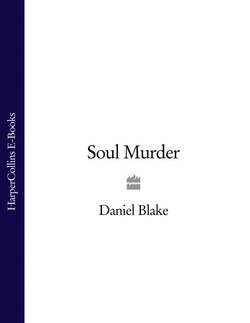Читать книгу Soul Murder - Daniel Blake - Страница 21
Saturday, October 30th. 9:32 p.m.
ОглавлениеPatrese’s sisters had gone to dinner with Bishop Kohler. Patrese had turned down the invitation. There were probably ways of spending Saturday night which he’d find even less appealing than listening to Kohler mouth platitudes by way of trying to offer spiritual succor, but he couldn’t think of any off the top of his head.
Instead, he stood on the balcony of his apartment and looked down over the city.
He lived in a block called The Mountvue on Mount Washington, the hill on the city’s south side which rises so giddily that only cable cars can make the ascent. He paid $1,200 a month for the place, at least a third of which was surely for the vista over the city skyline, which would have made postcard sellers kill their grandmas.
Dusk was his favorite time; the moment when the city was held suspended in all its contradictions; halfway between day and night, sanity and madness, picturesque and squalid.
The heart of downtown was called the Golden Triangle, sandwiched between the Allegheny and Monongahela rivers and tapering to the point where the two met and joined the Ohio. On crisp fall evenings like this it did indeed seem golden, the sunlight making the thrusting skyscrapers glow as though in belief that the day to come would hold more than the day just passed.
There was the medieval castle of PPG Place, all battlements and crenellations; there the four interlocking silver octagons of the Oxford Center; there the tallest of them all, the USX Tower, a behemoth of exposed steel columns and curtain walls; there the Grant Building flashing P-I-T-T-SB-U-R-G-H in Morse code over and again; and there the blue light on top of the Gulf Building which signified that the temperature was falling.
Patrese loved this city. Always had, always would.
He loved the way Pittsburgh held high the best of American values: hard work, unpretentiousness, renewal. Time was, in the heyday of the steel industry, when it had been virtually uninhabitable: palls of smoke so thick that streetlights had burned all day; desk jockeys who’d left their offices for an hour’s lunch downtown and returned to find their white shirts stained black; rivers so choked with chemicals that they had burned for days on end.
One writer had called Pittsburgh ‘hell with the lid taken off’. He hadn’t found much dissent.
But by the early 1980s the steel industry had shut down, and now hillsides above the mill sites had grown lush and green again. Pittsburgh was a riot of hills and valleys, slopes, hollows, streams, gulches too. It spilled out cockeyed across the landscape’s folds, taking its cues from the terrain.
It was therefore a city of neighborhoods, little worlds of their own separated by earth or water and rejoined by bridges. Pittsburgh had more bridges than Venice, something of which the tourist board was inordinately proud; that, and the fact that the ’Burgh had been voted America’s Most Livable City.
That kind of shit was always double-edged, Patrese thought. The surest way to stop it being Most Livable was to attract all the people who came here because it was Most Livable.
There was a sudden explosion of light from below as the sun reached just the right angle to fizz off one of the plate-glass corners on PPG Place. Patrese didn’t know whether the architect had designed it so, but he caught his breath every time he saw it happen.
He just wished Pittsburgh looked as good in Homewood as it did from up here.
